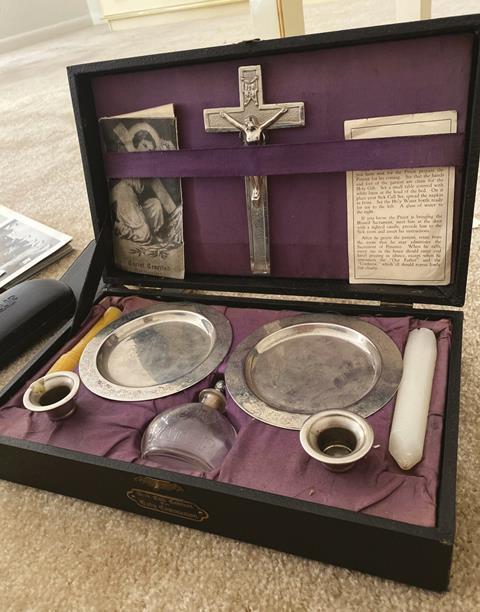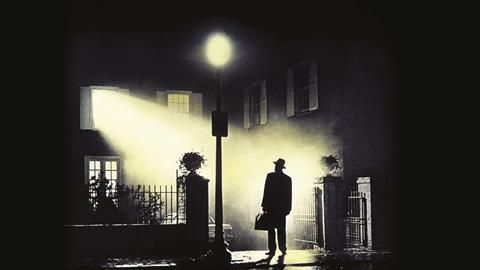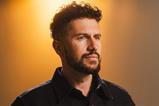Casting out demons was a normal part of Jesus’ ministry, yet many Christians today are sceptical (or perhaps terrified) of exorcism. In our era of mental health consciousness, is there still a place for deliverance ministry? Emma Fowle investigates
The year is 1998 and I am returning home from a night out. I’m in my early 20s and, full disclosure, not walking very closely with the Lord. My parents, however, are. We were saved a few years earlier into a free evangelical church in the full grip of the charismatic movement.
It is common, each Sunday, to see people lying on the floor of our church ‘slain in the Spirit’. Several of our number, myself included, have journeyed to revival meetings in Pensacola, Florida or Toronto Airport Christian Fellowship. And we are also in an area known (at least in evangelical circles) for its occult activity. All of this results in a regular melting pot of spiritual activity of the most charismatic kind.
As I walk through the door, I am ushered (a little under duress) into our front room. A teenage girl is being prayed for. As I enter, she locks eyes with me and a male voice, distinctly not her own, growls from deep within her.
I can’t recall the exact words ‘it’ used, but every sinful area of thought and activity in my life (things I was working extremely hard to hide at the time) were exposed to a crowd that included my parents and their closest friends.
With unnatural strength, she then picked up a small, concrete ornament and hurled it across the room, narrowly missing my head. Needless to say, I was terrified.
I recount this story to illustrate three points. Firstly, while it might seem outlandish to some, I do believe, based on my own experience and those of the experts that I’ve spoken to, that demonic oppression and possession are real.
Secondly, the manifestations I witnessed (which aligned with three out of the four commonly understood markers of major possession: speaking in a substantially different voice, unnatural knowledge and preternatural strength) are blessedly rare, despite what films such as The Exorcist and sensationalist newspaper reporting might have us believe.
And lastly, in the microcosm of my one experience can probably be distilled every lesson that the Church needs to learn if we are ever to manage the ministry of deliverance well.
A tumultuous history
According to Dr Francis Young, who specialises in the history of religion and belief, exorcism is “one of the most ancient of all Christian practices”. In the first Gospel account to be penned, Mark records Jesus doing “more dispossessing of the demonically possessed than any other activity”, Young tells me. And as early as chapter 3, Jesus gives his followers a mandate to do likewise, sending them out “to preach and to have authority to drive out demons” (Mark 3:14-15).
As the early Church is birthed, Acts records the apostles continuing in the ministry that Jesus commissioned them into, preaching the gospel, healing the sick and casting out demons wherever they went (Acts 5:16; 8:7; 16:16; 19:12).
Seen by many as a gift of the Holy Spirit, the divergence in Church practice over the next two millennia largely stems from arguments about who exactly is authorised to exercise that gift.
While many in the evangelical and Pentecostal movements would argue it is part of the ministry of all believers, in the established Church it quickly becomes sacramental, with priests casting out evil as part of the liturgy of baptism and delivering those otherwise oppressed by evil as and when needed using set rites.
By the Middle Ages, exorcism has fallen out of fashion, says Young, until a resurgence in interest around witchcraft causes it to reappear. After the Reformation, the Protestant Church divides on the issue; some who adopt a cessationist viewpoint teach that deliverance, like gifts of tongues and prophecy, ceased with the death of the last apostle; others view exorcism as popish and superstitious.
When the Book of Canons is published in 1604, designed to establish the government of the Church of England by the bishops, exorcism is effectively outlawed.
For the next four centuries, deliverance ministry becomes largely the domain of the Catholic and nonconformist Church until, in 1969, the canons of 1604 are repealed. It creates an “exorcism boom in the Church of England”, Young says.
“Suddenly you’ve got vicars inviting TV crews to watch them exorcising hundreds of people at a time. It’s crazy. Absolutely astonishing by our modern standards.”
But the glare of the spotlight created its own problems. The Exorcist sensationalised deliverance and the following year, in 1974, scandal broke. When Michael Taylor returned home after the supposed exorcism of his demons at St Thomas’ church in Gawber, South Yorkshire, he brutally murdered his wife and pet dog.It resulted – unsurprisingly – in a media storm.
He was later diagnosed with schizophrenia and admitted to a psychiatric hospital. The failure to recognise his severe mental illness was a game-changer for the Church of England.
The following year, they issued guidelines for good practice in deliverance ministry, paving the way for multi-disciplinary teams of clergy and lay people (including mental health professionals such as psychiatrists) in every diocese, who would work together in an attempt to avoid such mistakes in the future. As an extra layer of protection, all major exorcisms would need the express permission of the bishop.
What is minor exorcism?
Within the Anglican and Catholic Church, minor, or simple, exorcisms, are an ancient form of exorcism by which a minister prays over unbaptised persons who wish to enter the Church. Today, most minor exorcisms occur during infant baptisms.
The Catholic Rite of Baptism for Children includes this prayer of exorcism: “Almighty and ever-living God, you sent your only begotten son into the world to cast out the power of Satan, spirit of evil, to rescue man from the kingdom of darkness and bring him into the splendour of your kingdom of light. We pray for this child: set him/her free from original sin, make him/her a temple of your glory, and send your Holy Spirit to dwell with him/her.”
This does not imply that someone who is unbaptised is possessed by the devil, but is rather a prayer to protect them from evil and the devil as they move from the kingdom of darkness into the kingdom of light.
Simple exorcism – often also referred to as deliverance – can also be used when a person or place is oppressed. Both inside and outside of the Anglican and Catholic churches, this ministry can also involve lay people.
What is major exorcism?
A major, or solemn exorcism, is a very rare occurrence. It has the express aim of freeing a person who is possessed by a demonic spirit. In the Catholic and Anglican Church, this is always done by a minister who is authorised to do so using the Rite of Major Exorcism.
Before performing a major exorcism, medical and psychological testing is needed to rule out other possible causes. The exorcist must also verify that there are real signs of demonic possession. The four traditionally accepted indications are:
- Speaking in a previously unknown and unlearnt foreign language
- Preternatural knowledge of hidden or secret information
- Displays of extreme preternatural physical strength
- Severe and unusual aversion or reaction to the sacred and religious, eg taking communion, speaking the name of Jesus, reading the Bible
Outside of the Anglican and Catholic traditions, denominations have widely differing approaches to exorcism, including who can undertake it and how it is to be administered. However, anyone engaging with deliverance ministry should seek proper training, support and oversight and fully engage with their denominational guidelines and safeguarding practices.
Modern concerns
For Rev Will van der Hart, an Anglican priest and founder of the mental health charity Mind & Soul Foundation, Taylor’s case is symptomatic of the Church’s historic lack of understanding of mental health.
“The Church assumed that every mental health issue was, in fact, some sort of spiritual attack,” he says. “Therefore the only approach was to treat it with deliverance ministry.”
But alongside the infamous murder case, by 2012 there had also been a spate of child abuse cases with links to exorcism and/or witchcraft, “particularly, but not exclusively” from within “certain sections of the Pentecostal Charismatic Movement”, says Justin Humphreys, of safeguarding charity Thirtyone:eight. In response, the government issued a national action plan to prevent child abuse in religious communities.
An increased awareness of both safeguarding and mental health issues has, undoubtedly, had a large impact on the way deliverance ministry is viewed within the Church. And while this would seem a healthy realignment from what Young describes as the “wild west of practice in the 1960s and 1970s”, it has also led many to fear engaging at all in the field.
The Church of England is one of the few denominations with publicly available safeguarding guidelines that explicitly reference deliverance ministry. Approaches across other denominations vary wildly.
The evangelical Free Church of Scotland, for example, doesn’t permit exorcisms, writing them off as “dangerous and often abusive”. Simon Kennedy, communications and engagement officer for the denomination, added that while the Church “strongly believes in the reality of the devil” they “do not provide any specific training” or guidelines to govern practice.
Instead ministers are advised to “provide pastoral care”, “biblical counselling” and prayer, and encourage anyone coming to the Church for help to “seek out medical advice to rule anything else out”.

A growing demand
Across the board, experts and denominational leads serving in the deliverance field report that they are being called upon with increasing frequency.
Like the CofE, the Catholic Church requires priests to be appointed by their bishop to carry out the rite of exorcism. But unlike their Anglican counterparts, there is not yet a requirement for each diocese to have an appointed exorcist. In Ireland, there are just nine priests trained in this ministry, which leaves each one covering large geographical areas.
Father Pat Collins, who is based in Dublin, warns a lack of deliverance training for priests is an “abdication of responsibility”. He has witnessed an “explosion in demand” for exorcisms, and believes this is the logical result of a society that is increasingly dabbling with alternative spirituality: “People need meaning, and if they’re not finding it in orthodox Christianity, they will look for it elsewhere, often in the occult realm,” he says.
The Church of England’s national officer for deliverance ministry, Anne Richards, has also witnessed this increase in demand. As the most well-known Protestant denomination, it is perhaps no surprise that the Church of England fields most enquiries, and she says lockdown saw a huge increase in people seeking help.
The anxiety, bereavement and loneliness caused by Covid-19, coupled with “a huge explosion” of spiritual online content – not all of it good – means the Church is now “mopping up” the results of an anxious, questioning world that has dabbled in stuff they perhaps shouldn’t have.
But before we go getting all 1998 again, everyone I speak to is keen to emphasise that there is not a demon lurking behind every door. “A lot of people just need a chat with their parish priest,” continues Richards.
“They might use language that sounds sensationalist; they might talk about demons or spirits, but what they mean is: ‘I’m really worried about this, and I need somebody to talk to.’ So sometimes it’s just pastoral care. But sometimes, having the specialist ministry will really help.”
Van der Hart agrees. In 99 out of 100 cases where a person presents as needing deliverance, it’s likely to have a “psychological or neuro-chemical” explanation, he says. But rare as it may be, he admits that “one in 100 requires a much more powerful medicine”.
With disarming honesty, he recalls a recent correspondence with someone who felt he had “psychologised her experience” by focusing on mental health. Many years later she finally sought deliverance ministry, which resulted in “complete remission from all of her symptoms”.
“I felt quite chastened,” he says. “Maybe I’ve been fighting a corner for people who felt stigmatised because of their mental health. But I don’t want to de-spiritualise our spiritual experiences.
“I sometimes wonder whether, by raising very necessary questions about how we are interpreting what’s going on for people, we are also in danger of eroding confidence that the Spirit of God is at work,” he continues, “and that, actually, God can break every chain.”
WORKING TOGETHER
An area as complicated as deliverance ministry needs the utmost care, spiritual maturity and discernment, as well as robust oversight. So how do we get it right? Fr Collins advocates a team approach, insisting on a “full psychiatric report” on each person referred to him for deliverance. “What I’m looking for is: can the psychiatrist explain the behaviours in terms of abnormal psychology?” he says.
“The good ones will be open to the spiritual, even though they don’t deal in it. And they’ll say: ‘From my point of view, I cannot explain this pathology in psychological terms. So I think it’s over to you, Father, to deal with this one.’”
“I don’t believe you can medicate demons,” adds van der Hart. “If someone is struggling with serious and enduring hallucinations, delusions, paranoia, hearing voices etc, and they get better when they start taking anti-psychotic medication, that seems to be evidence that the problem is neurochemical. But if someone is treatment resistant, you’ve got to start asking questions about why they aren’t responding in a way that other people would.”
The heart of the gospel
If all this sounds like a sensible, Spirit-filled-but-person-centred approach, that’s because it is. All of the experts that I speak to are at pains to emphasise this is exactly where the Church should be aiming.
Whichever denomination, each person who walks into their local church looking for help should receive the pastoral care they need to meet with Christ and walk more fully in the freedom that he gives them. This is our biblical mandate as the body of Christ, sent to minister to a lost and hurting world.
“Jesus welcomed people, taught them about the kingdom of God and healed those in need,” says Peter Horrobin, founder of Ellel Ministries.
Rather than being too scared or unaware of how to help, the Church should follow in Jesus’ footsteps and “set people free”. Or, to put it another way, we need Christians able to “clean the catch”, he says, drawing on the analogy Jesus used for evangelism.
That doesn’t mean all churches will approach deliverance ministry in the same way, or that everyone will be actively involved, but it does mean that leaders should be thinking these issues through.
Otherwise, there is a danger that the Church will become little more than a “very nice referral service”, says van der Hart, triaging people before sending them elsewhere for “real help”. This would be missing the unique opportunity to administer the kind of Holy Spirit help that only the Church can, he adds.
After Covid there’s “a lack of spiritual confidence in the Church generally,” says van der Hart. “Lots of the structures are shaking, and certainly the charismatic part of the Church is looking for a move of the Spirit of God that they haven’t seen now for quite a long time.”
He wants to help church leaders “build greater confidence” in their congregations so mental health isn’t stigmatised, and Christians are “able to discern what someone might need – in terms of psychiatric needs or spiritual needs”.
Perhaps, after the wild west of the 1960s and 1970s, the charismatic renewal of the 1980s and 1990s, and the seeming wilderness that came after it, things are now beginning to move towards a healthier place.
Whatever your denomination, personal point of view or experience with the often-intimidating area of deliverance ministry, it’s time to crack on with the hard work of getting this right. The healing and freedom of many in our nation may depend on it.







































2 Readers' comments